
The 10th Annual Postgraduate Research Conference – 1 Day to Go!

Latest research and knowledge exchange news at Bournemouth University

Despite the bright sunshine in the first half of the week, the snowy week caused a fair amount of disruption, but there was plenty to read in the new HE Regulatory Framework launched on Wednesday.
On Wednesday the OfS launched the revised HE Regulatory Framework at their inaugural conference. The Minister for Universities declared himself to be the “Minister for Students” and to many in the room his speech sounded fairly ominous. You can read the speech here (“a revolution in accountability”). There’s an article by Dods here on Politics home.
You’ll remember the detail on the proposed new framework from the December policy updates and you can read BU’s response to the consultation here.
The main changes are:
A Wonkhe guest blogger writes on the danger of over-reliance on data to regulate the HE sector and highlights more innovative design interventions such as ‘nudge’ theory claiming it incentivises compliance from the outset.
The folks at Wonkhe have gathered all the materials here. It is worth looking at the Ministerial instructions to the OfS to see what the priorities are.
The OfS released the Access and Participation plans guidance (2019/20) and associated documentation on Wednesday at their launch event.
In the Government guidance to OfS there is a continued emphasis on demonstrating robust evidence of impact for the spending interventions universities support – ‘invest wisely’, incorporating TEF data, and further Transparency measures that the OfS might require universities to publish to advance equality of opportunity. Mention is made of OfS and the ‘levers at its disposal’ to regulating for continuous improvement of access and participation, and the increase in non-continuation amongst WP students in recent years. Flexibility of provision (including part time study, accelerated degrees, degree apprenticeships, evening degrees and foundation years) are also included, as is closing the differential degree and employment outcomes gap.
(Taken from the Government guidance to OfS)
The links to schools sponsorship, one of Theresa May’s original ambitions, remain although they are relatively low-key:
In the OfS guidance to institutions:
There is also an expectation for universities to ‘do more’ for careers outreach (see page 11).
From the guidance on the wise investment, whereby a university chooses which Access and Participation interventions to support:
The guidance also sets out the expectation that the OfS will continue to advise providers on effective practice. And hints the Government are looking for their regulator to bare their teeth more often:
In December OFFA commissioned HESA and CFE to research part-time students aiming to understand the reasons behind the decline and understand an effective provision offer. Existing HESA data has been analysed alongside a fresh survey investigating students’ motivations for studying part-time and identifying the barriers and enablers to access and progression. Case studies are also being undertaken to ‘provide insights for institutions seeking to recruit and tailor their support for different groups of part-time students, as well as improving access and provision across the sector’. The full findings will be released in April, however, on Tuesday HESA published a first update.
The data shows the widely recognised drop in part time recruitment associated with the introduction of higher fees occurred but a downward trend was already visible from 2008/09. The data delves deeper to highlight the overall influence the decline of ‘other’ undergraduate study is having on the overall decline. HESA pose the following questions:
There is also a drop within the mature student grouping for those aged 40 years and over (with proportionally part time students aged up to 25 compared to the past). HESA state the sector must therefore consider the factors that may be switching mature learners off this type of study – for instance, are the numbers studying for self-interest reducing, or are retraining opportunities becoming restricted?
When combing deprivation factors (Polar 4 – low participation neighbourhoods and highest qualification on entry) there is an even sharper decline in ‘other’ undergraduate entrants. HESA ask:
They go on: For example, we know from existing HESA data that entry into Nursing courses continues to decline, so what impact will this have on skills shortages within the NHS, particularly in light of Brexit? We will consider these questions further as the research progresses.
The Sutton Trust have published Home and Away. Their research explores how staying at home and studying locally is strongly differentiated by ethnicity and social background.
They found that:
They recommend greater financial assistance to help disadvantaged young people meet the increased cost of moving out and to meet the needs of ‘commuter students‘ – especially given their socio-economic make-up.
Home and Away received national coverage from the BBC, The i, The Herald, TES, Press Association, Metro and Buzzfeed among others.
In January The Sutton Trust published Internships- Unpaid, unadvertised, unfair. This week they announced the government has committed to tackling unpaid internships ‘by improving interpretation of the law and enforcement action taken by HMRC in this area’. See pages 17, 37, 46-48, 73 of the Taylor Review for the most relevant detail on unpaid internships and the Government’s acceptance of the recommendations. Here are some key excerpts:
Colleagues wanting to engage and have an impact on Government policy may be interested in a new MOOC (Massive Open Online Course) to learn about select committees. UK Parliament Explored the Work and Role of Select Committees launches next week on 5 March. It will cover:
Future Learn also run an Introduction to the UK Parliament: People, Processes and Public Participation. The course covers:
Follow this weblink to register interest in the Intro to Parliament course.
Click here to view the updated consultation tracker. Email us on policy@bournemouth.ac.uk if you’d like to contribute to any of the current consultations.
Despite Toby Young’s resignation from the OfS Board the controversy surrounding his appointment began afresh on Tuesday (and may have made Wednesday’s launch a bit uncomfortable). The Commissioner for Public Appointments Report on the OfS Board recruitment campaign was published – both Times Higher and Civil Service World cover the report including:
Angela Rayner (Labour) asked an urgent question in the House on Tuesday: To ask the Secretary of State for Education to make a statement on the appointment of the board of the Office for Students. Sam Gyimah responded to the question on behalf of the Government
Sam Gyimah (excerpt): The commissioner raises important points with regard to due diligence in public appointments. We have already accepted that in the case of Toby Young the due diligence fell short of what was required, and therefore the Department has already reviewed its due diligence processes and will seriously consider the further advice from the commissioner.
The longer debate covered other issues including why there aren’t any FE representatives on the OfS Board (because it’s a regulatory body for the HE sector and there are already two reps with FE expertise serving double duty). It also questioned the role of the NUS and OfS in countering radicalism on campus. On the OfS Sam Gyimah stated: It is important that the Office for Students has the relevant skills, and also the laser-like focus and the teeth to do something about this. I am glad that we will have a regulatory body with the teeth to do that very effectively.
Sam Gyimah came under significant fire from the Opposition and other parties during the ensuing discussion which he handled unflustered, rather reminiscent of his predecessor Jo Johnson.
Schools news: the Department for Education announced plans to introduce an income threshold of £7,400 for Free School Meal eligibility under Universal Credit, and a threshold of £15,400 for free early education entitlement eligibility.
To subscribe to the weekly policy update simply email policy@bournemouth.ac.uk
JANE FORSTER | SARAH CARTER
Policy Advisor Policy & Public Affairs Officer
Follow: @PolicyBU on Twitter | policy@bournemouth.ac.uk
 Connected Nation Pioneers is an exciting partnership between the Engineering and Physical Sciences Research Council (EPSRC) and key stakeholders. They have come together to recognise exceptional UK doctoral students whose research contributes towards the development of a Connected Nation.
Connected Nation Pioneers is an exciting partnership between the Engineering and Physical Sciences Research Council (EPSRC) and key stakeholders. They have come together to recognise exceptional UK doctoral students whose research contributes towards the development of a Connected Nation.
The competition is open to all UK doctoral students in the final two years of their doctorial training. Applicants need not be funded by the EPSRC to participate. This competition is being sponsored by DSTL, Facebook, BT, Samsung, Huawei, Thales, Amazon and NVIDIA.
This competition celebrates the transformative and pioneering research of UK-based doctoral students in contributing to up to two of the following category topics:
Applicants will be assessed per category by a panel of industrial sponsors in three stages:
All applicants reaching the third stage of the competition will receive media and presentation training and will have an excellent opportunity to network with representatives from both academia and industry. Each of the four category winners will receive a prize of £2,000 and a NVIDIA graphics card at a VIP Awards Ceremony Dinner, to be held at the Museum of Science and Industry in Manchester. The category winners will also compete in an elevator pitch contest as part of the Awards Ceremony to select an overall winner, who will receive a further £1,000.
Before applying for the 2018 Connected Nation Pioneers competition, please read the call document for full information regarding eligibility and assessment criteria. Please forward questions or comments to PioneersCompetition@epsrc.ac.uk.
The Expression of Interest form should be completed and submitted by the closing date of 16:00 on Thursday 26 April 2018. This can be found here. Key dates are also on the link.
You must contact your RKEO Funding Development Officer for your Faculty in advance of applying. Their name will need to be given on the expression of interest and we will need to record the application on BU’s database for research and innovation.
The Research and Knowledge Exchange Office is delighted to announce that US funding expert, Robert Porter, PhD, of Grant-Winners Seminars, will be delivering four US Funding sessions this week on 8th and 9th March.
 Limited spaces are still available – please reserve your place now for as many sessions as you can attend:
Limited spaces are still available – please reserve your place now for as many sessions as you can attend:
Thursday, 8th March:
US funding opportunities for international researchers – This session will focus on the eligibility requirements, funding levels, proposal development guides and submission deadlines for key US funders.
Strategies for success in sponsored research – In addition to developing their writing skills, grant seekers must focus on the relational issues that are key to success. This session will address these contextual challenges
Friday, 9th March:
Grants in the Humanities & Social Sciences
Building the National Institutes of Health (NIH) Grant Proposal
Find out more about each session and book.
There is a networking lunch between the morning and afternoon sessions. When booking, please advise if you will require lunch and any dietary requirements
If you want to develop your international research portfolio, please contact your faculty Research Facilitator.
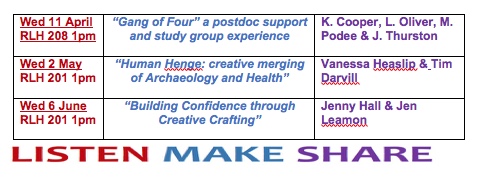
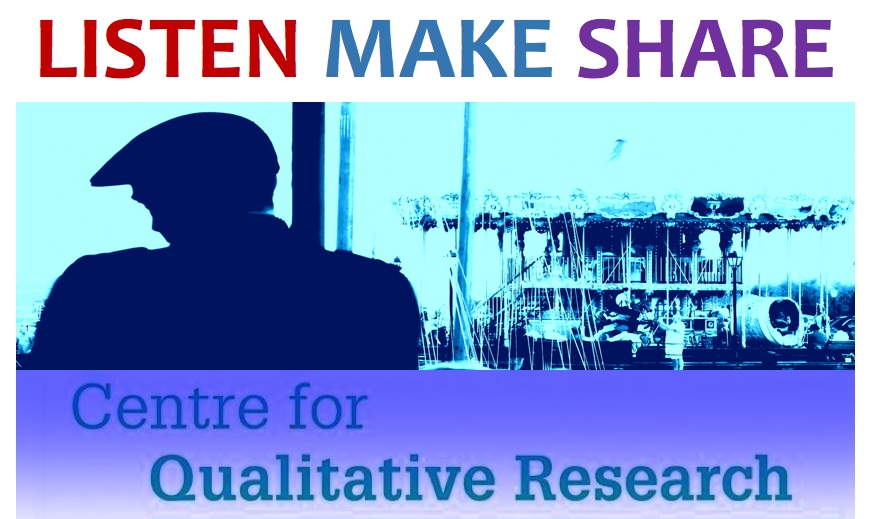
 The scheme to invest in research capacity for externally-funded projects with prestigious research funders was launched in August 2017 and has been revised in February 2018. The revised policy document can be found here or on the BU staff intranet under ‘policy/ research/ pre-award’.
The scheme to invest in research capacity for externally-funded projects with prestigious research funders was launched in August 2017 and has been revised in February 2018. The revised policy document can be found here or on the BU staff intranet under ‘policy/ research/ pre-award’.
The main changes are as follows:
Please read the full scheme document for clarification of the above.


Professor Jens Holscher Jas joined the review team of the Journal of Common Market Studies, a journal in which he had a number of articles published in the past.
“SURE was first mentioned to me by my dissertation tutor and I thought to myself ‘What have I got to lose?’.” Scott’s dissertation research looks at the relationship between stammering and sports participation. “Having a stammer myself and a passion for sport, it seemed like the obvious choice to undertake this research,” he says.
“I spent my placement year at a preparatory school where I chose to deliver a school assembly about stammering, how to manage it and how to react to those who have one. It was very well received from pupils, teachers and parents which also inspired me to conduct further research into the area.”
“Now that I have gained control of my speech through years of work with the McGuire programme, I want to help children who are currently experiencing the same feelings that I felt at their age. I am keen to share my work with other academics and students at SURE, particularly because there appears to be a lack of knowledge and research about stammering in the sporting context, and I feel it is vital to improving the wellbeing of those who stammer.”
“SURE is my first opportunity to present my work in an academic environment. Plus, I thought it would be nice to achieve something like this before I leave university! The workshops before the event have helped with what needs to be included and how to set my work out for the audience to understand. Also, the McGuire Programme has taught me how to enjoy public speaking so I am looking forward to the event!”
The Showcasing Undergraduate Research Excellence conference will taking place on 7 March 2018. Many undergraduate students from across the university will be presenting their research throughout the conference in a variety of different ways, from presentations to posters and art installations. Please register via the Eventbrite page if you would like to attend.
For more details, visit the SURE website or email the SURE team.

Post written by Dr Kaouther Kooli:
 I am pleased to announce that Professor Malcolm MacDonald will be giving a talk to the MSc Marketing Management students on Monday 5 March 2018 in room EB306. PGR and academics are invited to attend.
I am pleased to announce that Professor Malcolm MacDonald will be giving a talk to the MSc Marketing Management students on Monday 5 March 2018 in room EB306. PGR and academics are invited to attend.
You can find below a summary of the presentation and also Malcolm’s short biography.
Summary of the presentation
Six steps to develop financially quantified value propositions in B2B markets
According to McKinsey and my own research, everyone talks about value propositions, but only 5% of organisations have them and even those that do have them don’t always quantify them financially.
Any supplier who can quantify financially how they can help their customers grow their profits will always succeed, no matter how difficult the market conditions.
A lot of what constitutes value from a supplier is about helping the customer to avoid disadvantage, but, much more importantly, those suppliers who can demonstrate that they will create advantage for them will be respected and there will be fewer conversations about price.
This lecture will spell out a process for developing financially-quantified value propositions
Professor Malcolm MacDonald Short Biography
Until 2003, Malcolm was Professor of Marketing and Deputy Director of Cranfield University School of Management, with special responsibility for E-Business. He is a graduate in English Language and Literature from Oxford University, in Business Studies from Bradford University Management Centre, and has a PhD from Cranfield University. He also has a Doctorate from Bradford University and from the Plekhanov University of Economics in Moscow. He has extensive industrial experience, including a number of years as Marketing and Sales Director of Canada Dry. Until the end of 2012, he spent seven years as Chairman of Brand Finance plc. He spends much of his time working with the operating boards of the world’s biggest multinational companies, such as IBM, Xerox, BP and the like, in most countries in the world, including Japan, USA, Europe, South America, ASEAN and Australasia. He has written forty six books, including the best seller “Marketing Plans; how to prepare them; how to use them”, which has sold over half a million copies worldwide. Hundreds of his papers have been published. Apart from market segmentation, his current interests centre around the measurement of the financial impact of marketing expenditure and global best practice key account management. He is an Emeritus Professor at Cranfield and a Visiting Professor at Henley, Warwick, Aston and Bradford Business Schools. In 2006 he was listed in the UK’s Top Ten Business Consultants by the Times.
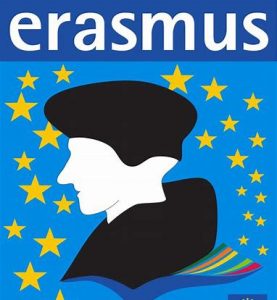
Once again Jens Holscher was awarded an ERASMUS grant to visit the University of Perugia (Italy). BU has a long established collaboration with colleagues in Perugia both in research and teaching. Jens will go there with PhD student Peter Howard-Jones to present a paper on Firm Productivity in the Western Balkans in their research seminar, which they recently published in Economic Annals. They will also give a series of lectures on Emerging Markets.
Dr Elvira Bolat has secured Erasmus Staff Teaching Mobility fund to visit and teach at the University of Beira Interior (Covilhã, Portugal) in May-June 2018. Elvira will deliver a social media marketing and online communication course to Master students. This visit will be hosted by Dr Arminda Maria Finisterra do Paço, Assistant Professor in Marketing.
In addition, Dr Bolat is organising and chairing the 17th The International Congress on Public and Non Profit Marketing (IAPNM), an annual event organised by major universities and scientific institutes that offers a friendly atmosphere and professional work environment for the presentation and discussion of the latest scientific and practical advances in the areas of public and nonprofit marketing, as well as in any other issue related to corporate social responsibility, social marketing and management of nonprofit organisations. IAPNM will be held in Bournemouth on 6-7 September 2018. The event attracts academics, businesses, public organisations and non-profit organisations across the world. Bournemouth being a Sustainable Fish city of Europe will continue building on its current reputation in a sustainability agenda. Dr Arminda Maria Finisterra do Paço and Dr Helena Maria Alves, from the University of Beira Interior, are members of IAPNM scientific committee. Travel to and teaching in the University of Beira Interior will allow Dr Bolat to discuss organisation of IAPNM in Bournemouth as well as enable collaborative research projects via joint funding proposals and research papers around use of social media in NGO’s (non-governmental organisations), tourism or HEI (higher education institutions).
Overall the visit will strengthen and expand the partnership between BU and the University of Beira Interior, especially in relation to the nonprofit marketing discipline.

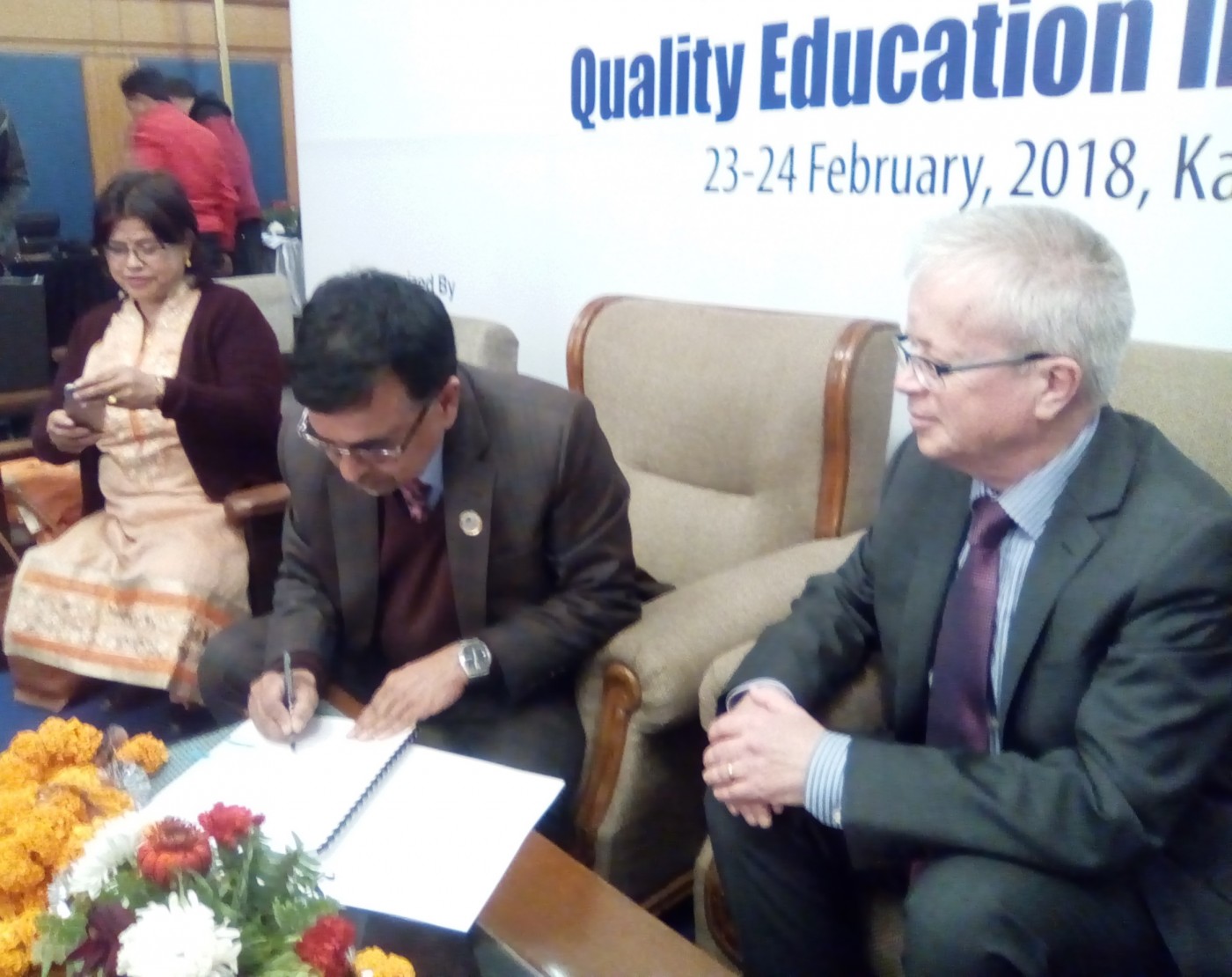 This weekend Manmohan Memorial Institute of Health Sciences (MMIHS) in Kathmandu, Nepal signed a Memorandum of Agreement (MoA) with Bournemouth University (BU).
This weekend Manmohan Memorial Institute of Health Sciences (MMIHS) in Kathmandu, Nepal signed a Memorandum of Agreement (MoA) with Bournemouth University (BU).  The ceremonial signing took place on the final day (24th Feb.) of the International Conference on Quality Education in Federal Nepal. Prof. Stephen Tee, who also spoke at the conference, represented our university.
The ceremonial signing took place on the final day (24th Feb.) of the International Conference on Quality Education in Federal Nepal. Prof. Stephen Tee, who also spoke at the conference, represented our university.
 The UoA formalises a long-standing collaboration between the two institutions. MMIHS and BU academics have jointly applied for research grants, conducted collaborative research and published together. Several BU staff [1-3] and students [4] in the Faculty of Health & Social Sciences have published in the Journal of Manmohan Memorial Institute of Health Sciences, an Open Access journal. Moreover, Prof. Edwin van Teijlingen in the Centre for Midwifery, Maternal and Perinatal Health has been a Visiting Professor at MMIHS for nearly a decade and has given several guest lectures over the years to staff and students at MMIHS.
The UoA formalises a long-standing collaboration between the two institutions. MMIHS and BU academics have jointly applied for research grants, conducted collaborative research and published together. Several BU staff [1-3] and students [4] in the Faculty of Health & Social Sciences have published in the Journal of Manmohan Memorial Institute of Health Sciences, an Open Access journal. Moreover, Prof. Edwin van Teijlingen in the Centre for Midwifery, Maternal and Perinatal Health has been a Visiting Professor at MMIHS for nearly a decade and has given several guest lectures over the years to staff and students at MMIHS.
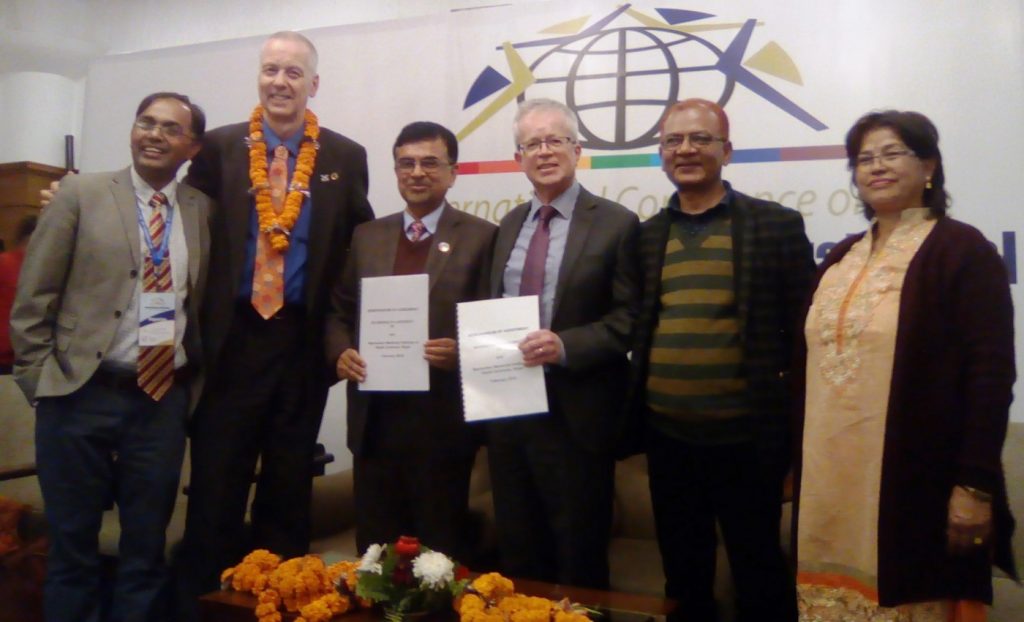
References:
As members of the scientific committee, Dr Jason Sit and Prof. Juliet Memery would like to invite colleagues and PGR students to submit papers to CERR 2018 at the University of Surrey (Guildford). Please find more details on the CERR website.
The paper/abstract submission is only two weeks away (March 15 2018) so we (the scientific committee) would like to give you a quick update on the event.
Should you have any questions or queries please contact Jason at jsit@bournemouth.ac.uk or on ext. 61888.

Dr Jason Sit has secured Erasmus+ staff mobility fund to visit IQS School of Management (Universitat Ramon Llull, Barcelona) in April 2018. Jason will share his research insights into Retail Consumer Experience and Technology with the UG and PGT marketing students at IQS. The visit will be hosted by Associate Professor Nicoletta Occhiocupo who teaches and researches in the domain of retail marketing. The visit will strengthen and expand the partnership between BU and IQS, especially in relation to the retail marketing discipline.
“I was inspired to submit an abstract to SURE as it looked like a great opportunity to showcase my research and also to develop my public speaking and communication skills,” says Abigail.
Her research explores the representation of refugee in contemporary documentary and current affairs reporting. “I have always followed the refugee crisis in the news. It is an incredibly important issue within humanity today, which is often not helped by negative media representation of the refugees themselves.”
Abigail was inspired by the BBC 2 series Exodus: Our Journey to Europe, “After watching this TV series, I knew that I had to use it as a case study,” she says. “I wanted to explore the key reoccurring representational themes within contemporary documentary and current affairs broadcasts which highlight the refugee crisis. This series offers new modes of documentary filmmaking which challenge the existing perceptions of refugees.”
“Overall, I think SURE is a great way to showcase work, especially to a wide variety of people. SURE offers students a chance to discuss their research with people outside of their faculty or programme, which is perhaps an opportunity we would not normally have.”
The Showcasing Undergraduate Research Excellence conference will taking place on 7 March 2018. Many undergraduate students from across the university will be presenting their research throughout the conference in a variety of different ways, from presentations to posters and art installations. Please register via the Eventbrite page if you would like to attend.
For more details, visit the SURE website or email the SURE team.
It’s down to you, the public, to vote for your favourite image which will determine the top 3 winners of this year’s Research Photography Competition. Voting closes at 4pm on Monday 12 March.
Click here to go to the voting web page.
All photo submissions will be exhibited in the Atrium Art Gallery on Talbot Campus from 20-30 March 2018 and is an opportunity to find out about the research behind each photo in much more detail.
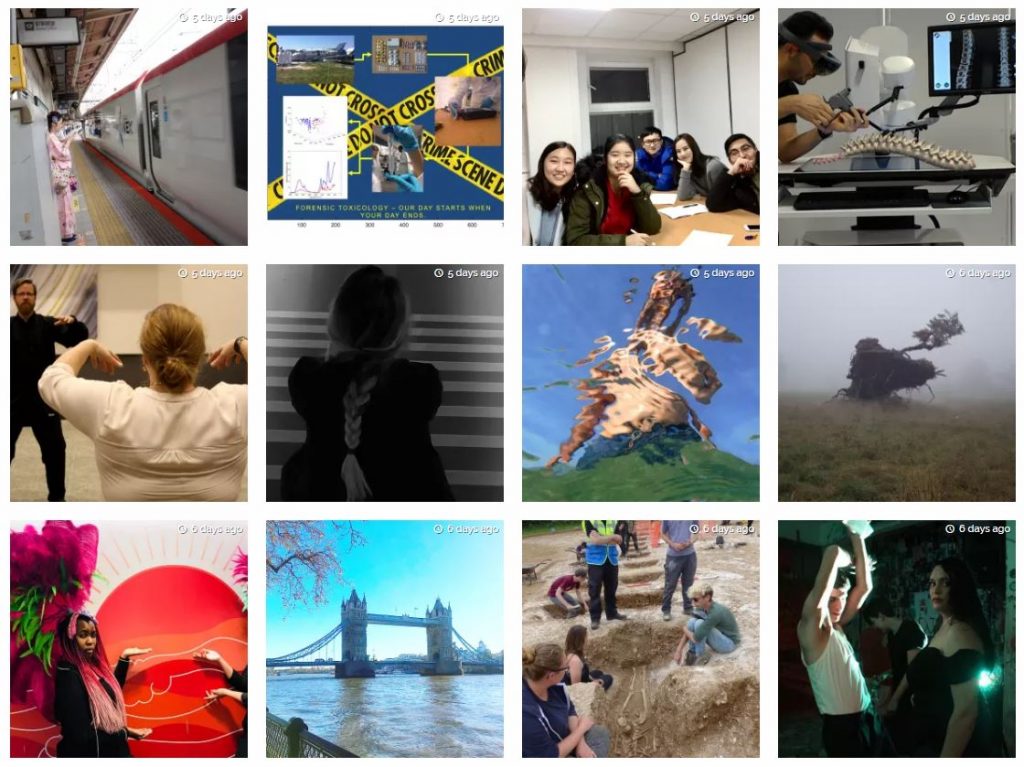
You can take a look at our Photo of the Week on the research website for previous year’s entries and the research behind their photos.